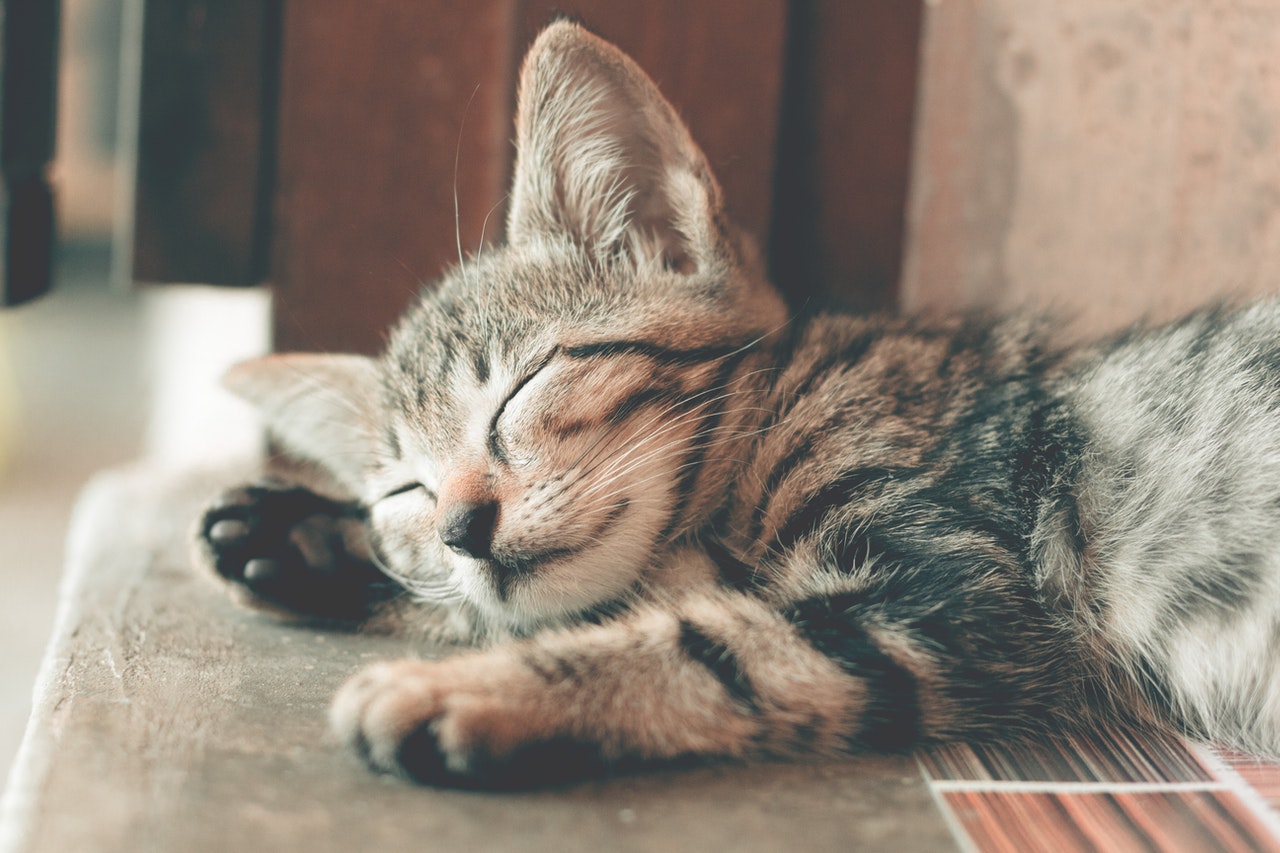
Do you know where your cat is at this moment? In the event that you’re reading this on your tablet or laptop, there’s a high probability that your furry friend is attempting to schedule an unplanned nap – right on the screen. In the event that Fluffy is not present, he or she is most likely sleeping or waking up from the 9th cat nap of the day. There’s no denying that cats are avid loungers, but there’s more to this indulgence than meets the eye. Cats sleep an average of 16-20 hours every day, but Why Do Cats Sleep So Much?
Cat Sleep Patterns
However, while many cats (especially kittens) are active at night, their species is actually categorized as crepuscular, which means that they “come alive” at the break of dawn and dusk. This can be explained by the fact that other natural predators are more likely to hunt during the middle of the night or during the day. Newborn kittens often sleep for the majority of the day, growing in the process as they nurse and sleep. Cats require an average of 16 hours of sleep every day as they mature, which is less than they did as kittens.
During the senior years, the cycle begins to rev up once more. Adaptability is a hallmark of feline behavior, and many animals will alter their resting patterns in order to spend more time with the individuals they care about. They’ll also make adjustments to nap hours to accommodate feeding schedules.
Your Cat Might Be Bored
When there’s nothing to do, animals tend to sleep more than usual. There are a variety of activities that you may provide for your cat to keep them from becoming bored. For example, you may construct a catio (a safe outdoor environment for your cat) or a set of climbing shelves for your feline friend. If your carpentry abilities aren’t up to the challenge, providing enrichment toys is a more straightforward way to keep your cat entertained.
Every day, give your new kitten or older cat three different sorts of toys to play with. Keep an eye on the toys they enjoy playing with and then purchase similar toys in a variety of styles and colors. Boredom can be avoided by first determining their preferences and then obtaining the appropriate type of toy.
Energy Conservation
Cats have the physiology of a predator, which means that they are programmed to chase and hunt prey, which they do primarily at night. Large cats, such as lions, have a similar sleeping and hunting schedule, napping during the day and hunting in the evening. Housecats, despite the fact that they have been domesticated for the most part, still have a wild streak in them. Even in their playful state, cats will demonstrate their feline primitive instincts by sneaking around in the shadows and pouncing on their prey without a peep of warning.
Furthermore, seeking prey consumes a tremendous amount of energy. Your cat’s sleep is primarily used to conserve energy for activities such as running, pouncing, climbing, and stalking, whether it’s hunting for prey in the wild or tackling a catnip toy.
Your Cat Might be Sick
When a cat is sick or not feeling well, he or she will hide and become less active. If your cat is spending the majority of his or her time beneath the bed or high up in the cat tree, he or she may be in discomfort or suffering. If your cat is overweight, he may not be able to move around very much and may choose to rest because it is painful to move around in the first place. Weight gain in cats can be a severe concern, causing discomfort while moving and resulting in endocrine diseases that require lifetime therapy.
You should schedule an appointment with your primary care veterinarian to have your cat’s overall health examined if you are unable to easily feel your cat’s ribs.
Does Weather Affects Your Cat’s Sleeping Routine?
It should come as no surprise that cats are affected by the weather in the same way that humans are. Breed, age, temperament, and overall health all have an impact on a cat’s behavior, which can be extremely variable. It has been noticed, however, that cats sleep more when the weather calls for it, so whatever your cat’s regular temperament is, keep this in mind. No matter how much your cat enjoys spending time indoors, a rainy or cold day will have him (and you) yawning and looking for a place to nap.
Your Cat Might Be Stressed
When cats are terrified or worried, they employ coping mechanisms such as hiding and being less active to cope. If your cat isolates himself from the rest of the family, only interacts with one member of the family, hides during storms, or becomes frightened when you are away, he may be suffering from severe stress. It’s possible that sleeping more is his coping mechanism. Inquire with your cat’s primary care veterinarian about the effects of stress on your cat. She may send you to a board-certified veterinary behaviorist if she believes you need one.
So How Much Sleep Is Too Much?
It is entirely dependent on the cat. As the kitty’s most trusted human, you are the greatest judge of what is normal for the feline’s sleep and behavior patterns. Cats are creatures of habit who follow strict routines and adhere to strict timetables. In the event that your cat normally gets up at 7 a.m. and demands food, but he suddenly starts showing up at 9 a.m. or not seeming to be interested in waking up at all, it may be necessary to consult with your veterinarian. If your cat’s behavior changes for only a few days, it’s possible that he’s merely recovering from a little bug.
In most cases, major health problems are accompanied by other symptoms such as behavioral shifts and changes in eating and drinking habits. If you see any other signs or symptoms, contact your veterinarian. As a result of stress, anxiety, or boredom, cats may sleep for longer periods of time than usual. These conditions are far easier to treat and are far less terrifying than medical problems.
Conclusion
So, to summarize, the solution to the question “why is she always sleeping” can be summed up in a single word: heredity. Cats, as a species, are all hardwired to the same internal clock, which is almost always set to the nap position. This is true whether they sleep on the street or cuddle on a couch with you. That, as well as the fact that house cats sleep when they are bored.






